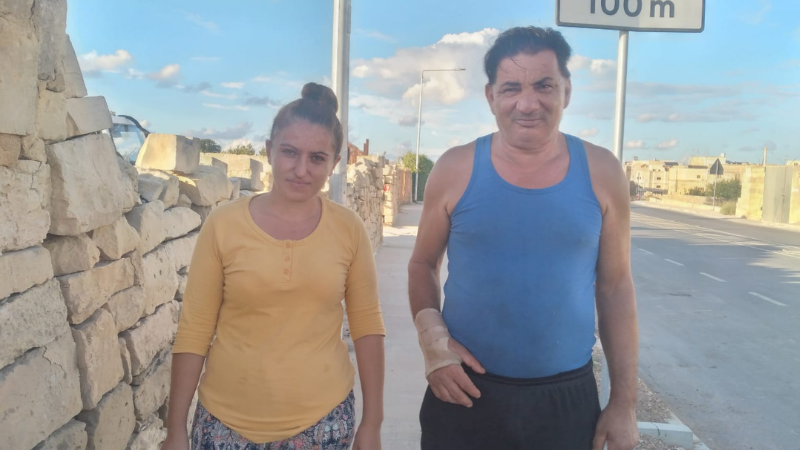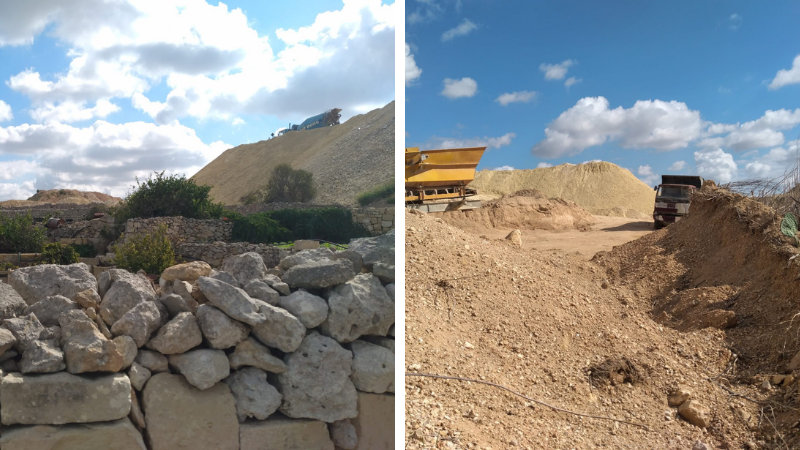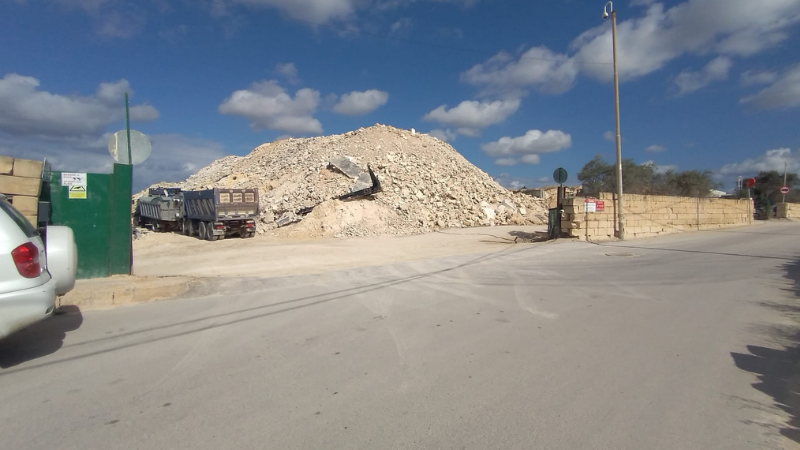A quarry on the outskirts of Dingli in which a Maltese worker was injured earlier this year has a raft of pending appeals and enforcement notices at the Planning Authority (PA) as well as the Environment Planning Review Tribunal (EPRT), some of which have been pending for 20 years, The Shift has learned.
The quarry, located a few hundred metres away from a secondary school and surrounded by quaint, low-lying houses and agricultural land on territory that was marked as Outside Development Zone (ODZ), looks precariously over-packed from the outside, with piles of debris towering over everything else as workers go about their day without any visible safety gear on any of them.
In May of this year, a truck driver and machinery operator named Joseph Spiteri had suffered multiple fractures in his wrist when he was injured during a routine dumping operation with a vehicle he was using. Since then, the owner of the quarry, Paul Falzon, has sent legal letters to Spiteri claiming €130,000 in damages for the vehicle.

Left: Sue Mangion, Joseph’s partner.
Right: Joseph Spiteri, the worker who was injured in Tlata Ltd’s quarry in May of this year.
While Spiteri fortunately survived the accident and is now hoping to be compensated for his dismissal from work during recovery from injury as he follows his case at the Industrial Tribunal, another worker in the same quarry did not survive a horrific accident that had occurred two years ago.
The Falzon family, the relatives of the worker who had died, were awarded compensation of €60,000 in damages from Tlata Ltd after the Occupational Health and Safety Authority (OHSA) determined that there were shortcomings in health and safety on the site.
To date, no discernible legal action has been taken by the authorities against the operator or the quarry itself except for forced compensation for the Falzon family.
A detailed analysis of the site’s history indicates that the site has three pending appeals at the EPRT related to planning applications that were initially refused by the PA.

Tlata Ltd’s quarry as seen from the back, with multiple piles of debris littering the site.
The three applications (PA/06325/01, PA/3404/04 and PA/4240/08) relate to works within the quarry involving use of land for soil sifting, sanctioning relocations of on-site equipment and the construction of garages and stores, respectively.
The applicant, Paul Falzon on behalf of Tlata Ltd, appealed each and every refusal for the applications above. All three of them have been pending at the EPRT, with meeting minutes often containing the same content and little to no explanation as to why a decision has been pending for 20, 17 and 13 years, respectively. Questions have been sent to the EPRT for further explanation.
Since the quarry’s operations began in 1994, five enforcement notices have been filed by the PA. Three of these notices (EC/00286/05, EC/00551/06 and EC/00555/09) are marked on the PA’s website as ‘direct action – at strong room’.
While questions have been sent to the PA to clarify what this term means and what the ‘strong room’ is, it is clear that the quarry is still operating with impunity, as confirmed by a site visit carried out by The Shift.
The most recent application relating to Tlata Ltd’s quarry is PA/05918/19, a screening application through which Falzon aims to back-fill the quarry, construct a concrete-batching plant as well as a concrete block manufacturing plant and maintenance on boundary walls and a gate.
This application has also been pending for two years. It is unclear why there is a screening application for back-filling of the quarry when a site visit confirms the quarry is already operating with an overloaded capacity of material on-site.
While Tlata Ltd is the oldest company registered under Falzon’s name, the same owner is also linked as the main shareholder and director of three other companies: Tlata Operations Ltd, Tlata Contractors Ltd and Cash & Debt Collecting Ltd. All the companies share the same address.














